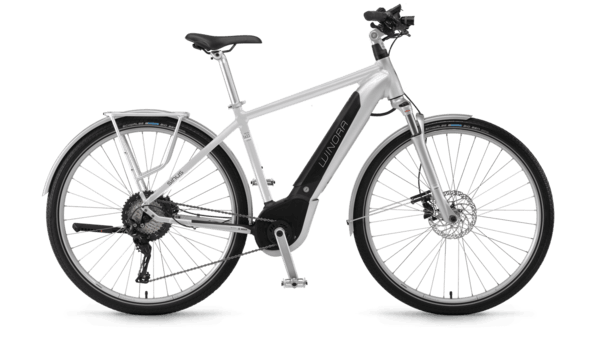
-
 Afrikaans
Afrikaans -
 Albanian
Albanian -
 Amharic
Amharic -
 Arabic
Arabic -
 Armenian
Armenian -
 Azerbaijani
Azerbaijani -
 Basque
Basque -
 Belarusian
Belarusian -
 Bengali
Bengali -
 Bosnian
Bosnian -
 Bulgarian
Bulgarian -
 Catalan
Catalan -
 Cebuano
Cebuano -
 Corsican
Corsican -
 Croatian
Croatian -
 Czech
Czech -
 Danish
Danish -
 Dutch
Dutch -
 English
English -
 Esperanto
Esperanto -
 Estonian
Estonian -
 Finnish
Finnish -
 French
French -
 Frisian
Frisian -
 Galician
Galician -
 Georgian
Georgian -
 German
German -
 Greek
Greek -
 Gujarati
Gujarati -
 Haitian Creole
Haitian Creole -
 hausa
hausa -
 hawaiian
hawaiian -
 Hebrew
Hebrew -
 Hindi
Hindi -
 Miao
Miao -
 Hungarian
Hungarian -
 Icelandic
Icelandic -
 igbo
igbo -
 Indonesian
Indonesian -
 irish
irish -
 Italian
Italian -
 Japanese
Japanese -
 Javanese
Javanese -
 Kannada
Kannada -
 kazakh
kazakh -
 Khmer
Khmer -
 Rwandese
Rwandese -
 Korean
Korean -
 Kurdish
Kurdish -
 Kyrgyz
Kyrgyz -
 Lao
Lao -
 Latin
Latin -
 Latvian
Latvian -
 Lithuanian
Lithuanian -
 Luxembourgish
Luxembourgish -
 Macedonian
Macedonian -
 Malgashi
Malgashi -
 Malay
Malay -
 Malayalam
Malayalam -
 Maltese
Maltese -
 Maori
Maori -
 Marathi
Marathi -
 Mongolian
Mongolian -
 Myanmar
Myanmar -
 Nepali
Nepali -
 Norwegian
Norwegian -
 Norwegian
Norwegian -
 Occitan
Occitan -
 Pashto
Pashto -
 Persian
Persian -
 Polish
Polish -
 Portuguese
Portuguese -
 Punjabi
Punjabi -
 Romanian
Romanian -
 Russian
Russian -
 Samoan
Samoan -
 Scottish Gaelic
Scottish Gaelic -
 Serbian
Serbian -
 Sesotho
Sesotho -
 Shona
Shona -
 Sindhi
Sindhi -
 Sinhala
Sinhala -
 Slovak
Slovak -
 Slovenian
Slovenian -
 Somali
Somali -
 Spanish
Spanish -
 Sundanese
Sundanese -
 Swahili
Swahili -
 Swedish
Swedish -
 Tagalog
Tagalog -
 Tajik
Tajik -
 Tamil
Tamil -
 Tatar
Tatar -
 Telugu
Telugu -
 Thai
Thai -
 Turkish
Turkish -
 Turkmen
Turkmen -
 Ukrainian
Ukrainian -
 Urdu
Urdu -
 Uighur
Uighur -
 Uzbek
Uzbek -
 Vietnamese
Vietnamese -
 Welsh
Welsh -
 Bantu
Bantu -
 Yiddish
Yiddish -
 Yoruba
Yoruba -
 Zulu
Zulu
Comprehensive Pricing Guide for Thread Rolling Machines and Their Specifications
The Pricing Landscape of Thread Rolling Machines A Comprehensive Overview
Thread rolling machines have become indispensable tools in various manufacturing sectors, enabling the efficient production of threaded components. These machines take raw materials and, through a process of deformation, create precise threads that are essential for bolts, screws, and other fasteners. As industries continue to evolve and demand more advanced manufacturing solutions, understanding the pricing landscape of thread rolling machines becomes crucial for manufacturers looking to invest in these technologies.
Factors Influencing the Price of Thread Rolling Machines
The price of thread rolling machines can vary widely based on several key factors. Firstly, the type of machine plays a significant role in pricing. There are generally three types of thread rolling machines flat dies, cylindrical dies, and planetary thread rolling machines. Flat die machines are typically less expensive due to their simpler design and functionality, making them a popular choice for smaller operations. On the other hand, planetary machines, which offer higher precision and can handle more complex threading tasks, tend to command higher prices.
Secondly, the capacity and specifications of the machine will directly influence its cost. Machines capable of high production rates or those designed for heavy-duty applications generally come at a premium. For instance, manufacturers looking for machines that can roll larger diameter threads or operate at higher speeds may find themselves paying significantly more than for standard models.
New vs. Used Machines
Another factor affecting the pricing is whether the machine is new or used. New thread rolling machines are often more expensive due to the latest technology and manufacturing advancements they incorporate. Additionally, manufacturers benefit from warranties and service agreements when purchasing new equipment, which can provide peace of mind and lower long-term maintenance costs. Conversely, used machines can offer substantial savings, but buyers must carefully consider the machine's condition, service history, and potential need for repairs or upgrades.
thread rolling machine price pricelist

Location and Brand Considerations
Geographical location can also impact the pricing of thread rolling machines. Different regions may have varying levels of demand for manufacturing equipment, affecting local market prices. Additionally, brand reputation plays a significant role; well-established brands often charge a premium for their machinery due to perceived reliability and quality. Manufacturers considering investments in thread rolling machines should evaluate various brands and compare their offerings to find the best fit for their operational needs and budget.
Price Ranges
To provide a clearer picture, thread rolling machines can typically range from about $10,000 for basic flat die machines to well above $100,000 for advanced models with high capacities and intricate features. Custom-built or specialized machines could push prices even higher. It’s essential for potential buyers to conduct thorough research, consider their production requirements, and consult with manufacturers or distributors to obtain accurate price estimates tailored to their specific needs.
Conclusion
As industries increasingly adopt automation and precision manufacturing processes, the demand for thread rolling machines is expected to grow. Understanding the various factors that influence pricing—from machine type and specifications to new versus used options—can help manufacturers make informed purchasing decisions. By carefully evaluating their operational requirements and budget constraints, businesses can invest effectively in thread rolling technology, positioning themselves for greater efficiency and competitiveness in the market. Ultimately, a well-informed approach to purchasing thread rolling machines will result in enhanced productivity and streamlined production processes, driving overall business success.
